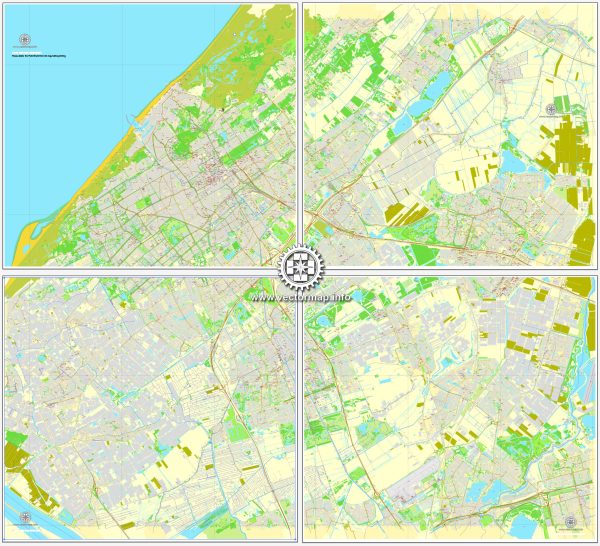The history of The Hague (Den Haag) in the Netherlands is rich and diverse, spanning centuries and encompassing political, cultural, and economic developments. Here is a brief overview of the historical highlights of The Hague:
- Early History: The Hague’s history dates back to the 13th century when it was founded as a hunting residence for the Counts of Holland. The city’s name is believed to have originated from the word “hage,” which means a hedge or enclosure, referring to the wooded dunes in the area.
- Growth as a Political Center: The Hague’s rise to prominence began in the late 16th century when it became the seat of the Dutch government. The city played a crucial role during the Eighty Years’ War (1568-1648) against Spanish rule and subsequently became a significant political and administrative center in the Dutch Republic.
- International Diplomacy: The Hague’s history as a center for international diplomacy began in the late 19th century when it hosted the First Hague Peace Conference in 1899. The city is renowned for its commitment to peace and justice, housing various international organizations and tribunals, including the International Court of Justice (ICJ) and the International Criminal Court (ICC).
- 20th Century: The Hague played a pivotal role during World War II, with the Dutch government-in-exile headquartered in the city. The Nuremberg Trials following the war also contributed to the city’s reputation in international justice.
- Modern Developments: In the post-war period, The Hague continued to grow as a major political and administrative hub in the Netherlands. The city’s economy diversified, with sectors such as finance, legal services, and international organizations contributing to its prosperity.
- Cultural and Educational Significance: The Hague is known for its cultural heritage, including historic buildings, museums, and a vibrant arts scene. It is also home to several universities and higher education institutions, contributing to its intellectual and academic importance.
- Contemporary The Hague: Today, The Hague is not only the seat of the Dutch government but also hosts numerous embassies and consulates. It is often referred to as the “International City of Peace and Justice” due to its role in international diplomacy and humanitarian efforts.
The Hague’s historical significance as a political and diplomatic center, along with its cultural heritage and economic diversity, make it a unique and fascinating city in the Netherlands. It continues to evolve and adapt to the demands of the modern world while preserving its historical legacy.


 Author: Kirill Shrayber, Ph.D.
Author: Kirill Shrayber, Ph.D.